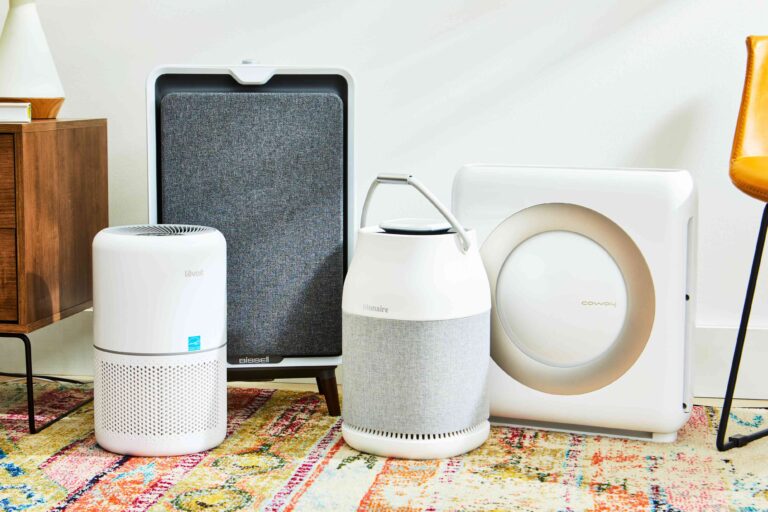Most Common Home Appliance Problems and Fixes: A Handy Guide for Homeowners
Home appliances are essential for our daily lives, but like all machines, they are prone to wear and tear. Whether it’s your refrigerator not cooling properly, your washing machine shaking uncontrollably, or your dishwasher not draining, appliance problems can disrupt your routine and cause frustration. Fortunately, many common home appliance issues can be fixed with a little know-how. In this guide, we’ll explore the most frequent home appliance problems and provide simple solutions that can save you time, money, and a trip to the repair shop.
Refrigerator Not Cooling: What to Check First
A malfunctioning refrigerator is one of the most common and concerning appliance problems. If your refrigerator is not cooling properly, it can lead to spoiled food and a lot of frustration. Start by checking the thermostat setting to ensure it’s properly adjusted. If the temperature is set too high, the fridge won’t cool effectively. Dirty condenser coils can also prevent proper cooling, so clean them regularly. Ensure the fridge is not overcrowded, as poor air circulation can affect cooling. If these basic checks don’t resolve the issue, the door seals may be worn out, allowing cool air to escape. Lastly, if these solutions don’t work, the problem could lie with the compressor or refrigerant levels, requiring professional help.
Washing Machine Not Draining: Causes and Fixes
A washing machine that won’t drain can be an annoying problem, but it’s often an issue you can resolve yourself. Start by checking the drain hose for clogs or kinks. If the hose is clear, the next step is to inspect the pump filter, which can get clogged with lint or debris. Clean out the filter and see if that resolves the issue. If the machine still won’t drain, the pump motor could be faulty and may need repair or replacement. For machines with front-loaders, make sure to check the drain pump located at the bottom of the machine, as it can get blocked easily.
Dishwasher Not Draining: Troubleshooting Tips
Dishwashers are known for their convenience, but they can also experience drainage problems. If your dishwasher is not draining properly, the filter or drain hose could be clogged with food particles or debris. Start by checking the drain filter for blockages and cleaning it thoroughly. The drain hose should also be checked for any clogs or kinks that might obstruct water flow. Another common issue is a faulty drain pump, which can prevent the water from draining completely. In some cases, the check valve could be stuck, preventing water from draining. If you’ve cleared the hose and filter but the problem persists, you may need to call in a professional to inspect the pump or valve.
Microwave Not Heating: Why It Happens and What to Do
A microwave that doesn’t heat your food can be very frustrating. The most common reason for this issue is a faulty magnetron, which is the component responsible for generating the microwave’s heat. If the magnetron is malfunctioning, the microwave will no longer produce heat. Before assuming the worst, check the fuses inside the microwave, as a blown fuse can also prevent heating. If the fuse is intact, the magnetron is likely to blame, and you may need a replacement. Keep in mind that replacing the magnetron can be a complicated and costly repair, so it might be more economical to purchase a new microwave if the appliance is old.
Oven Not Heating: Common Issues and Solutions
An oven that won’t heat can be a major inconvenience, but many issues are easy to diagnose and fix. If your oven isn’t heating, check if the temperature setting is correct and ensure that the oven is properly plugged in. For electric ovens, the heating element could be burned out. Inspect it for visible signs of damage, such as breaks or blisters. If the heating element looks fine, the thermostat or igniter may be faulty and need replacing. Gas ovens may have a gas valve issue, in which case you’ll need a professional to inspect and repair it. Regular maintenance of oven components can help prevent these issues from arising in the future.
FAQs
1. How can I tell if my refrigerator’s condenser coils need cleaning? If your refrigerator is not cooling properly or the compressor is running loudly, it could indicate dirty condenser coils. Check the coils (usually located at the back or bottom of the fridge) for dust and dirt buildup, and clean them with a coil brush or vacuum.
2. What should I do if my washing machine is making a lot of noise during the spin cycle? Excessive noise could be caused by an unbalanced load or worn-out drum bearings. Ensure that the clothes are evenly distributed in the drum. If the noise persists, inspect the bearings for wear, or call a professional if you suspect a more serious issue.
3. My dishwasher is leaking; what could be the cause? A leaking dishwasher could be caused by a worn-out door seal, clogged drain hose, or loose hose connections. Inspect these areas for signs of wear and damage. Additionally, check the spray arm for blockages or damage that could be causing water to leak.
4. How can I extend the life of my microwave? To extend the life of your microwave, regularly clean the interior, avoid running it when empty, and ensure the door seals properly to prevent heat loss. It’s also important to use microwave-safe containers and avoid overheating the appliance.
5. What’s the average lifespan of a home appliance? The lifespan of a home appliance varies depending on the type and brand. On average, dishwashers last about 9-10 years, refrigerators can last 13-17 years, washing machines about 10 years, and microwaves typically last 9 years. Regular maintenance can help extend their lifespan.
